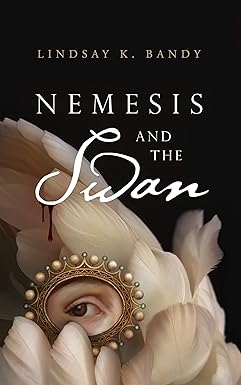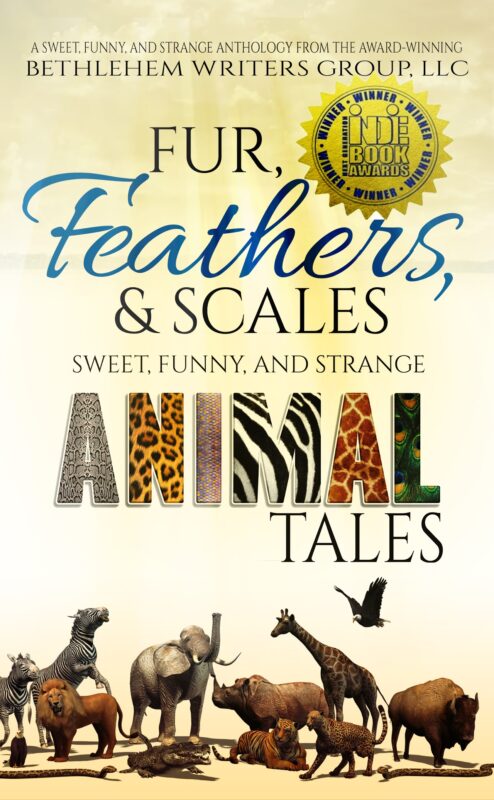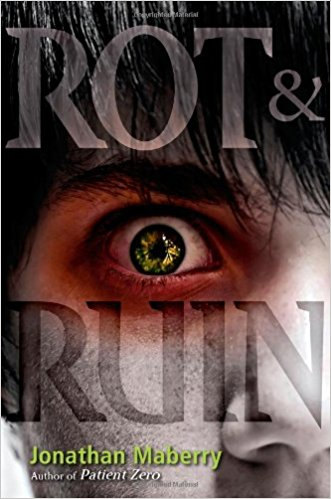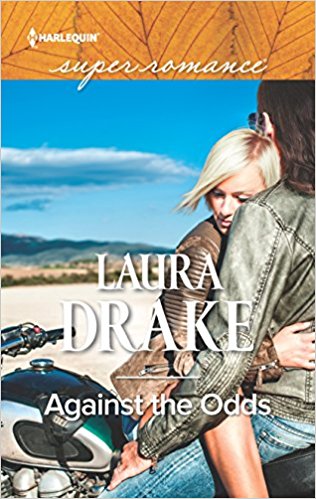Learning to Love the Writing Process
June 28, 2009 by A Slice of Orange in category Archives tagged as novels, writers, writing processWriting a book is not easy. If it were, everyone would do it.
It’s not like writing a term paper. Yes, it requires hard work and research, but the thing that makes a book special is the heart and soul the author puts into it. It really is like childbirth. There’s a lot of pain and sweat and maybe some cursing, and then finally a new project is brought into the world—a unique and wonderful project that is nothing like anyone else’s. Just like a baby.
When a writer first decides to write a book, most of the time he or she is not quite sure how to go about it. The non-writing part of the population figures you just need to sit down and put in some time and poof—a book is born (See term paper reference above). Yes, writing an entire book does take time. How much time? That depends on the writer. And you can speed up your writing time by accepting and loving your Process.
What is your Process? It is how you write your book. Not how I write my book—that’s my Process. You need to figure out your own process—what works for you that gets you from Page One to The End. And the best way to do that is to write a book, all the way through.
Every writer has his or her own process. I’ve written and published twelve books over the past ten years or so, and I still call up my friend when I get stuck. And I still get stuck at the same place in every book—between chapters five and nine—where I spend a long time banging my head against the wall and wondering if I will ever finish another book in my life…EVER. And you know what my friend says? “Oh, that’s just your process.â€
For some reason, knowing that this is my process immediately makes me feel better.
“You do this with every book,†she says.
I do?
“I’ve been studying your process. I’m trying to learn from it.â€
You are? Can you clue me in?
I have learned some things about my process over the years. There’s the chapter 5-9 problem. Usually when I’m in the middle of a frustrated, Tasmanian Devil spin, the realization that I am at the end of chapter six calms me down. Okay, this is what I always do. Grit teeth and tough it out.
Then there’s the fact that I am sort of an organized pantser. I’ve been selling on synopsis for about eight or nine years now. I write a synopsis and get approval from the publisher, and then I start writing the book. I write the first couple of chapters. Go back, change them. Decide no, that’s not where the story starts. Write a different beginning. Okay, this one might work. Write some more (usually just up to chapter 4 or so—don’t want to hit the No Man’s Land of Chapters 5-9 while still wrestling with the beginning). I might even write a third incarnation of the beginning of the book. Send to writing friends for review. Get comments. Maybe I hear a speaker or read a writing book that makes me reconsider the beginning. Maybe I try storyboarding, but something still isn’t right. In the end, nine times out of ten I will end up going back to my first version of the beginning of the book. Turns out that was the right place to start after all.
Once I have accepted the beginning few chapters, and I have wrestled with my chapter 5-9 issue, I usually get to the first love scene in the middle of the book—around chapter 10 or so. Writing love scenes and sexual tension is easy for me, so once I get to that point, the rest of the book flies. I am able to surge forward at warp speed and finish the book on time.
With every book I write, the frustration is still there. The certainty that my last book may well have been my LAST book. Every beginning I chase myself in circles. Every second quarter of the book I bang my head against the wall. Then I hit the middle and suddenly the words fly almost faster than I can type them. And when it’s all over, I have a book to submit.
Then I have to do it all again for the next one.
Understanding my process definitely makes it easier to accept while I am in the midst of deadline angst. Loving my process is harder, but the two of us are joined irrevocably. We create wonderful stories together, and that makes it all worthwhile.
A Fantasy Life
June 28, 2009 by A Slice of Orange in category A Fantasy Life by Janet Cornelow tagged as Janet Cornelow, Janet Quinnby Janet Quinn Cornelow
I hope everyone is having a great weekend.
Me. I’ve been laid up with a pinched nerve in my back for the last week. Now, I am having a strange reaction to the pills they gave me and can’t breath.
However, I did want everyone to think I just forgot it was my day to blog, so this is it.
Have a great July 4th also.
OCCRWA July Online Workshop – “Writing Cozy Mysteries” w Emily Brightwell
June 26, 2009 by A Slice of Orange in category Archives********** permission to forward **********
Hi everyone! Check out the exciting online classes offered by the Orange County Chapter of RWA!
“Writing Cozy Mysteries”
With Cheryl Arguile w/a Emily Brightwell
July 13, 2009 – August 8, 2009
Enrollment Information at http://www.occrwa.org/onlineclassJul09.html
COST: $20 for OCC members, $30 for non-members
Enrollment deadline: July 12, 2009
If you have specific questions, email occrwaonlineclass@yahoo.com
ABOUT THE CLASS:
In Cozy Writing 101, Emily Brightwell will share the method she uses to plot her “Inspector and Mrs. Jeffries” Victorian mystery series. In this class, Emily will cover everything from how to come up with a real killer of an idea to how to get to the solution of the crime. Topics covered will include : coming up with your protagonist, how to find the very best suspects, the kind of setting needed for a cozy, how to plant clues and red herrings and finally, the final resolution.
This is the same great class Emily taught here in 2006!
ABOUT THE INSTRUCTOR:
Emily Brightwell is the author of the best-selling Victorian London Murder Mysteries featuring the detective team of Mrs. Jeffries and Inspector Witherspoon. She has written twenty-five novels in this cozy mystery series and is busy working on the next.Born in West Virginia, her family moved to Los Angeles when she was ten. After high school, she attended California State University at Fullerton and earned a Degree in American Studies.In addition to writing the Mrs. Jeffries’ series, she has also written six Young Adult novels for Berkley under her maiden name, Cheryl Lanham. Emily and her family live in Southern California.
Enrollment Information at http://www.occrwa.org/onlineclassJul09.html
COST: $20 for OCC members, $30 for non-members
Enrollment deadline: July 12, 2009
Coming in August – Using Body Language and Vocal Gestures to Create More Believable Characters with Bill Edmunds
We will learn how to better stir the blood of our readers by creating more believable romance characters through descriptions of body language and vocal gestures.
http://www.occrwa.org/onlineclasses.html.
Check out our full 2009 list of workshops.
Want to be notified personally two weeks before each class? Be sure you’re signed up for our Online Class Notices Yahoo Group! Sign up at the bottom of http://www.occrwa. org/onlineclasses.html or send a blank email to OCCRWAOnlineClassNotices-subscribe@yahoogroups. com
********** permission to forward **********
Check out Harlequin Insider
June 24, 2009 by A Slice of Orange in category Archives tagged as Harlequin, Harlequin Insider, MySpace, Silhouette, TwitterHarlequin announces the launch of Harlequin Insider, a desktop application that brings the interactive world of eHarlequin.com right to you. Get all the latest news from eHarlequin.com delivered directly to your computer desktop.
It’s easy to set up and in just a few minutes, Harlequin Insider will be available at your fingertips. You’ll get regular updates of new releases, hot titles, community events, daily reads, special offers and more…
You can also check out Harlequin’s interactive daily polls and hero of the day feature.
Enjoy!
Also Check out Harlequin on MySpace
Silhouette on MySpace
Harlequin on Twitter
Get Harlequinized! Too much is never enough….
Best,
Isabel Swift
my blog
Advice to Myself as a Newbie Author
June 22, 2009 by A Slice of Orange in category Advice to Myself as a Newbie Author by Shauna Roberts tagged as Advice to Myself as a Newbie Author, DeAnna Cameronby Shauna Roberts
http://ShaunaRoberts.blogspot.com
Today’s Guest: Deanna Cameron
If you could travel back in time to before you were first published, what advice would you give yourself?
 The first thing I’d tell myself is this: 1. There’s no silver bullet to writing a good novel. I’m sure this is obvious to most writers starting out, but it was a surprisingly difficult lesson for me to learn because I’m the kind of person who thinks you can do just about anything if you learn the right rules.
The first thing I’d tell myself is this: 1. There’s no silver bullet to writing a good novel. I’m sure this is obvious to most writers starting out, but it was a surprisingly difficult lesson for me to learn because I’m the kind of person who thinks you can do just about anything if you learn the right rules.
I love rules. I love organization. I cling to clearly defined goals, and I take intense pleasure in being able to track progress. So when I set my mind to the task of writing a novel, my first and strongest instinct was to search out the set of writing rules I thought would pave the way.
I enrolled in classes, I signed up for workshops, I read craft books, and I attended conferences. I absorbed as much knowledge as possible, assuming it would naturally lead to great writing. Then I’d sit at the keyboard, and I’d wait for the captivating words and an elegantly composed storyline to magically appear beneath my fingertips. And I’d wait. Eventually I’d type something, and inevitably it fell short of the kind of brilliance I was expecting.
I told myself that could only mean one thing: I hadn’t yet found the right rules. So I took more classes, signed up for more workshops, read more books, and attended more conferences. Then I tried again. By then I was so full of rules, I froze at the keyboard. Instead of letting the story flow, I analyzed and overanalyzed every word I wrote. You can imagine the number that did on my creativity.
I would have saved myself a lot of time—and frustration—if I could tell my earlier self that writing is just plain hard work, and there are no rules or shortcuts that will erase that fact. The only way to produce good writing is to write—a lot—and to find your own rhythm and style in the words.
Here are a few other things I’d tell myself:
2. Hard and fast rules don’t exist when it comes to writing fiction. For every rule out there, you can find examples of brilliant stories that break that rule. Look at the classics or scan through the bestsellers, and you’re sure to find these novels break some rule or another. A better goal is to be aware of the rules, but write knowing that you must stay true to your own sense of what works for your story and your characters.
3. Forget the old adage “write what you know.†I’ve found it’s more important to write about what you love, what excites you, or what you’re dying to learn more about. Writing about something that excites you or that is a new discovery for you will naturally elevate your writing. If it’s a topic that is truly brand new to you, however, research it well enough to write about it authoritatively.
 4. Don’t settle for getting your manuscript in reasonably good shape with the belief that an agent and editor will see the potential and help you perfect it. If you’re lucky enough to get interest from an agent and/or an editor, he or she is looking for work that is already polished. Don’t be tempted to send out a manuscript that isn’t ready.
4. Don’t settle for getting your manuscript in reasonably good shape with the belief that an agent and editor will see the potential and help you perfect it. If you’re lucky enough to get interest from an agent and/or an editor, he or she is looking for work that is already polished. Don’t be tempted to send out a manuscript that isn’t ready.
5. Remember why you started writing in the first place. If you’re like me, you began writing because you took pleasure in the act of writing itself. Yet somewhere along the line—after we’ve taken a bunch of classes and workshops and joined critique groups and stumbled through multiple drafts—you might become convinced that getting the story into print is The Most Important Thing. But it isn’t, not really. Building a world with nothing more than words and your imagination is an amazing and tremendously gratifying thing in and of itself, and that should be honored whether it leads to publication or not.
✥✥✥✥✥
To learn more about DeAnna Cameron, please visit her Web page at http://www.DeAnnaCameron.com or her blog at http://DeAnnaCameron.blogspot.com. You can preorder her July 7 release, The Belly Dancer, at your local bookstore or online at Amazon.com, Barnes & Noble, and Borders.
Affiliate Links
A Slice of Orange is an affiliate with some of the booksellers listed on this website, including Barnes & Nobel, Books A Million, iBooks, Kobo, and Smashwords. This means A Slice of Orange may earn a small advertising fee from sales made through the links used on this website. There are reminders of these affiliate links on the pages for individual books.
Search A Slice of Orange
Find a Column
Archives
Featured Books
FUR, FEATHERS AND SCALES: Sweet, Funny, and Strange Animal Tales
So cuddle up with your favorite pet-real or imaginary. No matter. You'll find just the right story to share.
More info →PINDLEBRYTH OF LENLAND: THE FIVE ARTIFACTS
Pindlebryth and Darothien struggle against betrayal, international intrigue, and an unseen puppet-master, as they race to follow a bewildering trail of ancient clues to locate the most powerful of the Artifacts.
More info →
ROT & RUIN
In the zombie-infested, post-apocalyptic America where Benny Imura lives, every teenager must find a job by the time they turn fifteen . . .
More info →Newsletter
Contributing Authors
Search A Slice of Orange
Find a Column
Archives
Authors in the Bookstore
- A. E. Decker
- A. J. Scudiere
- A.J. Sidransky
- Abby Collette
- Alanna Lucus
- Albert Marrin
- Alice Duncan
- Alina K. Field
- Alison Green Myers
- Andi Lawrencovna
- Andrew C Raiford
- Angela Pryce
- Aviva Vaughn
- Barbara Ankrum
- Bethlehem Writers Group, LLC
- Carol L. Wright
- Celeste Barclay
- Christina Alexandra
- Christopher D. Ochs
- Claire Davon
- Claire Naden
- Courtnee Turner Hoyle
- Courtney Annicchiarico
- D. Lieber
- Daniel V. Meier Jr.
- Debra Dixon
- Debra H. Goldstein
- Debra Holland
- Dee Ann Palmer
- Denise M. Colby
- Diane Benefiel
- Diane Sismour
- Dianna Sinovic
- DT Krippene
- E.B. Dawson
- Emilie Dallaire
- Emily Brightwell
- Emily PW Murphy
- Fae Rowen
- Faith L. Justice
- Frances Amati
- Geralyn Corcillo
- Glynnis Campbell
- Greg Jolley
- H. O. Charles
- Jaclyn Roché
- Jacqueline Diamond
- Janet Lynn and Will Zeilinger
- Jeff Baird
- Jenna Barwin
- Jenne Kern
- Jennifer D. Bokal
- Jennifer Lyon
- Jerome W. McFadden
- Jill Piscitello
- Jina Bacarr
- Jo A. Hiestand
- Jodi Bogert
- Jolina Petersheim
- Jonathan Maberry
- Joy Allyson
- Judy Duarte
- Justin Murphy
- Justine Davis
- Kat Martin
- Kidd Wadsworth
- Kitty Bucholtz
- Kristy Tate
- Larry Deibert
- Larry Hamilton
- Laura Drake
- Laurie Stevens
- Leslie Knowles
- Li-Ying Lundquist
- Linda Carroll-Bradd
- Linda Lappin
- Linda McLaughlin
- Linda O. Johnston
- Lisa Preston
- Lolo Paige
- Loran Holt
- Lyssa Kay Adams
- Madeline Ash
- Margarita Engle
- Marguerite Quantaine
- Marianne H. Donley
- Mary Castillo
- Maureen Klovers
- Megan Haskell
- Melanie Waterbury
- Melisa Rivero
- Melissa Chambers
- Melodie Winawer
- Meriam Wilhelm
- Mikel J. Wilson
- Mindy Neff
- Monica McCabe
- Nancy Brashear
- Neetu Malik
- Nikki Prince
- Once Upon Anthologies
- Paula Gail Benson
- Penny Reid
- Peter Barbour
- Priscilla Oliveras
- R. H. Kohno
- Rachel Hailey
- Ralph Hieb
- Ramcy Diek
- Ransom Stephens
- Rebecca Forster
- Renae Wrich
- Roxy Matthews
- Ryder Hunte Clancy
- Sally Paradysz
- Sheila Colón-Bagley
- Simone de Muñoz
- Sophie Barnes
- Susan Squires
- T. D. Fox
- Tara C. Allred
- Tara Lain
- Tari Lynn Jewett
- Terri Osburn
- Tracy Reed
- Vera Jane Cook
- Vicki Crum
- Writing Something Romantic
Affiliate Links
A Slice of Orange is an affiliate with some of the booksellers listed on this website, including Barnes & Nobel, Books A Million, iBooks, Kobo, and Smashwords. This means A Slice of Orange may earn a small advertising fee from sales made through the links used on this website. There are reminders of these affiliate links on the pages for individual books.









































